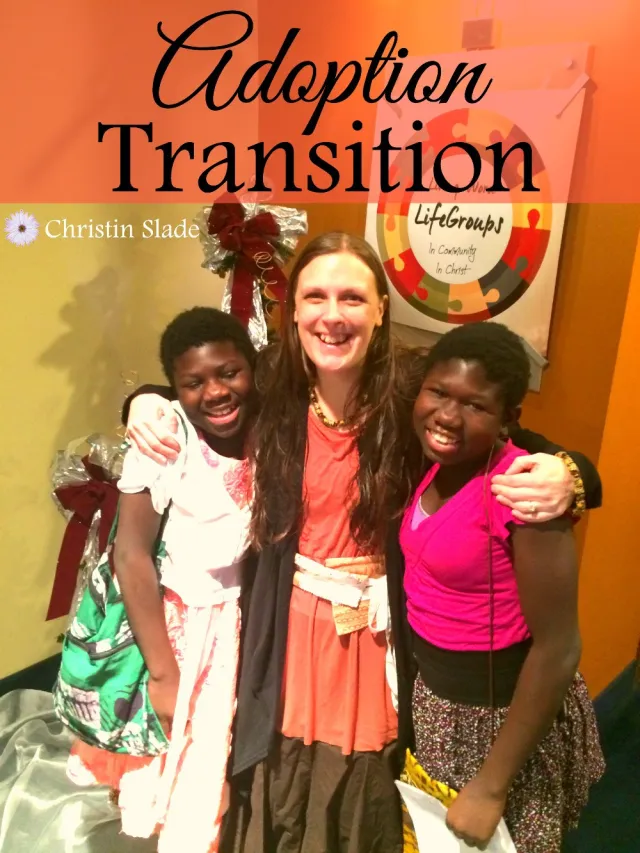
Adoption Transition
We read through the books of experts and the stories of other adoptive families how hard things are when their children come home. We were prepared, as best we could, to take on those challenges. The first week was just blissful and all the children got along like best friends. In fact, even today, the children fight over playing with Margaret! Gabriella (12) and Margaret (11) are inseparable.
So, after a few weeks of settling in, we were kind of waiting for the fireworks to begin. We waited and waited. And, well, 5 months later we’re kind of still waiting.
There haven’t been any big explosions to speak of. The girls are adjusting beautifully and each month we uncover more of them; they release more of themselves to us…little by little.
Elvis, the director of the orphanage they came from, stayed with us last weekend and he said Margaret never used to talk. He was surprised to see her talking so much!

She has a gift for drawing.

Christina is a bit more complex. We knew from our first impression of her that her adjustment would be more difficult, but it’s far from impossible. She is a very sensitive girl and a puzzle at times, but we are working through it a day at a time. She can often struggle with motivation — to do anything; whether it’s school work or learning to ride her bike this summer. Sometimes she tends to give up a little to easily, so she needs some extra encouragement.
I remember within the first six weeks, when Christina would struggle with an issue, she would automatically shut down (or as the experts call it, “take flight”). She wouldn’t talk to anyone, despite our prodding. So, I would do the talking. I would tell her that I understand she has gone through a big change, that she must be scared and miss her family back in Ghana. I then would tell her that I wanted to help her, but I couldn’t help if she didn’t tell me what she needed. I would squeeze her in a side hug, kiss her head, tell her I loved her and leave the room.
After about 10 or 15 minutes, she would come out and open up again. But she would never tell me what it was that was bothering her. After a few weeks of doing this routine, she started to talk to me and tell me what was bothering her. It could be anything from having a headache to not wanting to eat something in particular to not wanting to do a chore.
Here’s an example of such a scenario.
A few weeks ago I integrated Margaret into switching days on and off with Gabriella on hand-washing dishes. Which, in a family of 9, is a big job. So one would wash and one would dry. Because of this, I decided it best to give Margaret’s chore of sweeping the dining room to Christina. Ohhhh she didn’t like that at all and I couldn’t quite figure out why. We had suspicions that it could be because the job was seen as “Margaret’s”.
So, we explained the situation to Elvis while he was here and he said in the orphanage, they NEVER switched chores around. Everyone always had the same chore…even if they switched days, it still remained consistent. That change in the routine didn’t sit well with Christina’s security levels. So, the job went back to Margaret.
Two Common Issues in Children With Trauma
Any child, no matter how early they were adopted, has suffered loss and trauma. When a baby is taken from their birth mother, they automatically experience trauma that is associated with loss. There are all kinds of reasons why that I won’t get into here, but suffice it to say all adopted children suffer with loss and trauma to some degree.
As a result, common behavioral issues will arise that may not be what they seem, such as lying. We don’t deal with the majority of the issues many families face.
Lying
We do continue to deal with some issues such as lying. This was something that went on in the orphanage as well, as told to us from several sources who experienced working with our girls. We are unsure yet why, but knowing it was already a “norm” {strange as it sounds} is a bit comforting.
Bryan Post is an adoptee with a wonderful organization to help adoptive parents. I learned from him that all lying stems from fear, and if you think about it, it certainly makes sense. Why do people lie? They are afraid of something. For a child, it would be punishment. For an adoptive child, it could be fear of being sent back.
These issues are not unusual for children who have trauma in their life and I share these details with you in an effort to help those coming up behind me. Because I know how valuable first-hand experience is and if I can help even one other family in similar circumstances, wonderful.
Food Issues
Many adopted children deal with food issues for a number of reasons. Food hoarding, controlling, overeating, and other behaviors involving food stem from issues of trauma. We have had to deal with some minor food issues, but even after just 5 months, many of those issues have been resolved–at least for the moment.
One of our girls was quite an eater the first 4 months and given the fact that they were rather skinny, I {mostly} let them eat until they were full. After they gained some weight and grew an inch and a half each, their eating habits leveled out. I do believe one of the girls was wanting to be sure her belly stayed full for a while, but even so, since what she was eating was healthy foods with the vitamins and nutrients she needed, I allowed it.
God has taught me (and is teaching me) so much about, not just mothering, but a deeper compassion and understanding. He is teaching me to stop reacting and to think before I speak. Something spoken in the wrong tone or at the wrong time can cause further damage rather than healing. I don’t want to end up going backwards.
Today, I am learning how to care for their hair. I have been scouring the website Chocolate Hair, Vanilla Care and plan to buy their book that just released in September. Which is an entirely different post! 😉









Leave a Reply